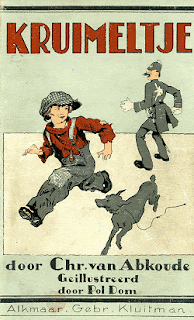When you needed to
learn Dutch, you read ‘Ot en Sien’ and ‘Kruimeltje’. Later, when you needed to
learn English, you read Superman comics, the Famous Five and Myths and Legends
from Many Lands.
You got yourself comprehensible input in
the language that you had to learn.
You chose interesting material at your level.
It’s possible to expand the difficulty
limit of the material if you have a way to making it understandable. (Cheating is allowed.)
If
you already know the story, that’s good
(unless you are disinclined to re-read books or watch movies again and
again). But you could get around that by seeking more by the same
author, or continue in that genre.
If your listening is at a level where it supplements your understanding, then listen to the audiobook at the same time as you follow along on paper or the screen.
And if you read on screen, you might use an
application that gives you the meaning of words when you scroll over them.



